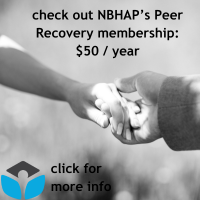Advocacy Alert: Attorney General Memo on Policies Regarding Charging, Please, and Sentencing in Drug Cases
December 30, 2022
On December 16, Attorney General Merrick Garland issued a memorandum to all federal prosecutors regarding the application of prosecutorial discretion in charging and sentencing.
In this memo, the Attorney General instructed prosecutors to move away from drug charges that trigger mandatory minimum sentences if the cases meet the criteria of not involving violence or defendants with an extensive criminal history. This encourages prosecutors to consider the circumstance of individual cases more closely and minimizes the use of long prison sentences. The memorandum also significantly reduces crack cocaine sentencing disparities by requiring that all crack charges and sentences be made equivalent to those of cocaine.
In 1971, Nixon declared what is now known as the "war on drugs". In the years following that declaration, several measures were enacted, such as mandatory minimum sentencing, meant to curb the rising drug epidemic.
However, as we know today, these measures did little to impact the rising rates of crime and overdose. Instead, the punitive lens taken on drugs and recreational drug use from the Nixon era only fueled the stigmatization of substance use disorders (SUDs) perpetuating the racial and social disparities we see in the criminal justice and health system.
The heavy penalization of individuals for substance use inspired blame on the SUD community and solidified the notion that individuals should take responsibility for choices they made while struggling with what is ultimately a chronic illness. The indiscriminate sentencing of individuals in drug cases regardless of their level of involvement with a larger criminal organization caused rates of incarceration to increase. The racial disparity in crack cocaine sentencing exacerbated racial inequities by widening the gap in the sentencing of people of color. And these are just a few of the consequences of the "war on drugs."
Though the SUD community continues to struggle with these consequences to this day, the directives introduced by the Attorney General's memo not only move prosecutors away from the stringent punitive measures criminalizing ill individuals but also represent a momentous recognition of the disparities caused by the historically discriminatory application of criminal justice measures against individuals suffering from SUD. By swinging the pendulum away from criminalization, this memo represents a shift in the right direction.
Questions? Concerns?
As always, we want your input. What topics would you like to see us cover in future Advocacy Alerts? If you are a representative of a state association and have something for us to consider for an Advocacy Alert, let us know!
Did you know BHAP members get regular access to our advocate in Washington, DC? If you have any questions about BHAP's advocacy efforts, please contact us.

A national membership association that provides education and advocacy for those in the behavioral health and addiction treatment industries.
We are the leading and unifying voice of addiction-focused treatment programs.



